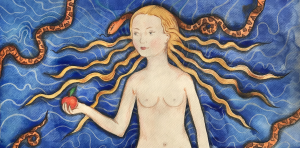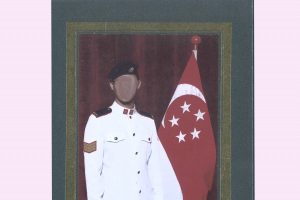
Colorado City
by The ISIS | November 12, 2012
 “Keep sweet” read the phrase Laura Chapman taped to her bathroom mirror. A personal doctrine to ensure her survival, these two words meant more to this girl, now a grown woman, than it would to most. They meant suffering in silence as Chapman, aged three, was molested by her father. They meant being beaten with a yardstick by one of her father’s four wives – and being forced to leave school at the age of 11. Keeping “sweet” was being made to marry a stranger at the age of 18, and then giving birth as often as physically possible. It meant bearing this pain to avoid expulsion from her religion and community, because it was all she had ever known. Laura Chapman, now a free woman or “apostate,” lived her childhood as many hundreds of children still do today: as a victim of polygamy in the town of Colorado City.
“Keep sweet” read the phrase Laura Chapman taped to her bathroom mirror. A personal doctrine to ensure her survival, these two words meant more to this girl, now a grown woman, than it would to most. They meant suffering in silence as Chapman, aged three, was molested by her father. They meant being beaten with a yardstick by one of her father’s four wives – and being forced to leave school at the age of 11. Keeping “sweet” was being made to marry a stranger at the age of 18, and then giving birth as often as physically possible. It meant bearing this pain to avoid expulsion from her religion and community, because it was all she had ever known. Laura Chapman, now a free woman or “apostate,” lived her childhood as many hundreds of children still do today: as a victim of polygamy in the town of Colorado City.
Approximately 40,000 people in Utah and its neighbouring states live in illegal polygamous families. Colorado City, in Arizona, is one of most notorious polygamist communities. Formerly known as Short Creek, the town was founded in 1913 by members of the Fundamentalist Church of Jesus Christ of Latter Day Saints, a sect of The Church of Jesus Christ of Latter-day Saints, which broke away because it desired a remote location where members could observe the doctrine of polygamy – a practice publicly abandoned by the LDS Church in 1890.
As Rowland Elvidge, national public affairs director of the LDS in the UK, states: “Too often news reports refer to these [polygamous] groups as ‘Mormons’ or ‘Mormon sects.’” Yet, despite being officially unacknowledged by the LDS, the FLDS continues to define itself as a group of ‘fundamentalist Mormons’. Currently, it is one of the largest Mormon fundamentalist denominations and one of the biggest organisations in the US whose members practice plural marriage.
The FLDS currently enforces polygamy via “placement marriage” or the “law of placing.” The leader of the church, regarded as a prophet, receives a revelation from God to assign a woman of marriageable age to a particular husband. “Marriageable age” can be any age from puberty – there are numerous recorded cases of child brides as young as 12. The prophet awards wives to men according to their position in the community. At the time of his death, church leader Rulon Jeffs was confirmed to have married 22 women and fathered more than 60 children. Recent estimates suggest that Warren Jeffs, the latest leader of the FLDS, could have over 60 wives.
Polygamy inevitably leads to bride shortages and often to child marriages, incest, and child abuse. With so much evidence pointing towards the prevalence of these issues, it seems startling that such an abusive doctrine could exist in our times, and operate in a country with such a highly developed legal system as the US. In fact, Colorado City is exceptional amongst other polygamous communities, precisely because of the legal attention it has attracted, both historically and more recently. On the morning of July 26, 1953, more than 100 police officers and soldiers invaded the fundamentalist Mormon community of Short Creek in what has been dubbed the “Short Creek Raid.” They arrested the entire populace, including 236 children, 150 of whom were taken from the custody of their parents for over two years. Indeed, some parents were never to regain custody of their children. The Short Creek Raid was the largest mass arrest of polygamists in American history, and it received overwhelming press coverage. However, this press coverage did little to highlight the issues surrounding polygamy. Public sentiment turned against authorities after newsreels showed children being taken from their mothers, and fathers being thrown in jail. In the words of the Child Protection Project: “The public did not understand the systemic abuse suffered at the hands of the polygamist patriarchs.”
Flora Jessop, another “apostate” who escaped from Colorado City, explains why fewer children take the decision to run away. “In order to continue this way of life, you keep [the girls] uneducated and don’t give them a choice. By the time they figure it out they have kids they need to protect.” This under-education has been reinforced by the church’s policy of home-schooling: in 1999 Rulon Jeffs ordered members to remove their children from public school – a decision, Jessop maintains, that was necessary to sustain the lifestyle. “I used to say that I’m not fighting polygamy,” says Jessop, now a social activist working to eradicate the existence of child brides. “But I am, because you take out the underage girls; let them have an education, give them a choice, and how many are going to live in [polygamy]? Not very damn many.”
Just glancing at the demographic of Colorado City, it is not difficult to see that child brides are a numerical necessity in order to maintain polygamy. As of the 2000 Census, the median age of the town was 14. For every 100 females aged 18 and over, there were 91.3 males. It doesn’t take a mathematical mind to work out that, in order for men to have tens of wives, they must wed girls of an increasingly young age, and that a proportion of male members must be exiled. In January 2004, Warren Jeffs expelled a group of 20 men, including the mayor, and gave their wives and children to other men. According to the Utah attorney general’s office, this was not the first instance of such an expulsion; as many as 1,000 boys may have been outcast. Naïve, poorly educated and abandoned, they often end up homeless drug addicts.
Ladell Pipkin, one of 37 children, was found by the New Times living out of a van in a deserted car park, in north Phoenix. Covered in scabs and pulling hair from his face, he appeared under the influence of crystal meth. Despite having graduated from secondary school, Pipkin could barely put together a sentence. He was enrolled by activists at a youth treatment centre yet, after leaving a disturbing, handwritten letter, he disappeared. “Please help me,” the letter reads. “It’s just to [sic] darn late, Ladell. You have messed up everybody’s life. You are a mass murderer. You are just like a Hitler. Just what in the world were you thinking when you tried to challenge God? I should just commit suicide right on the spot. I am damned for all eternity for ever and ever.”
Jessica is a 17-year-old activist of Principle Voices, the campaign for the legalisation of polygamy. She claims that she is not “brainwashed, mistreated, neglected, malnourished, illiterate, defective or dysfunctional.” Yet the Campaign Against Polygamy and Women Oppression International (CAPWOI) claims “polygamy is synonymous with child brides…subjugation, incest, isolation and deprivation” and has collected evidence from around the world demonstrating the practice oppresses women via female circumcision, dowry system, forced marriage, honour killing, child marriage, purdah, marital rape, wife battery, and sexual segregation. Principle Voices maintains they “abhor abuse wherever it happens” and that they “do not believe abuse is inherent in polygamy.” But while it is true abuse crosses all social lines, it is also undeniable that the abuse of children is accepted in some polygamous societies, and is harder to eradicate due to the isolated nature of such communities.
“If you judge me,” begins Amanda, aged 14, speaking at the Youth Rally for the campaign, “then you’ll have no time to love me. That is a quote from Mother Teresa, which I feel is very true. I hope that one day I can be judged for who I am, not for the way my parents choose to live.” While watching these speeches on the Principle Voices website, it is difficult to disagree with the morality they base their campaign upon: that we should not judge and persecute the beliefs of others. It would never be illegal to have a mistress, and to father children by more than one woman at a time.
Yet polygamy as an institution cannot fail to be sexist. It means a society of indomitable male hegemony, limited education and opportunities for women, and the systematic abuse of children through the institutions of family and marriage. Polygamy is not a practise isolated to the third world, but survives today in America, Canada, and according to the 2004 BBC documentary Inside the Harem, even in our own country. Colorado City provides an extreme example of the damage caused by polygamy, and we cannot ignore the suffering of those who still live according to this doctrine.




